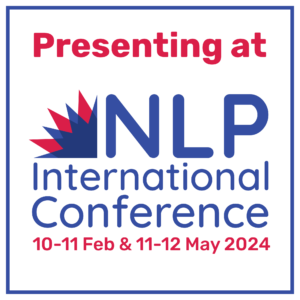How do Beliefs and Identity Overlap?

The Value of Santa Claus
Having completed teaching our NLP Master Practitioner in Georgia yesterday, I wanted to explain some insights I shared around changing beliefs and identity.
I started the training with Robert Dilts’ Belief Change Cycle, an elegant process based on the principle that most of our beliefs serve a useful, but temporary, purpose. An example is the childhood belief in Santa Claus. Believing in Santa is an important developmental phase where children are allowed to have magical thinking so they can begin to develop their imagination. Later, when they reject the belief, they develop the skill of independent critical thinking. When a person is denied this developmental phase by overly rational parents, they may become susceptible to joining cults later in life as they were not given the opportunity to develop their own critical thinking. However, continuing to believe that Santa will come to your rescue is also unhelpful, so it is an important belief to change.
‘Beliefs about beliefs’
The Belief Change Cycle opens up the principle of beliefs about beliefs. Some people take any challenge to their beliefs as a challenge to their very identity. Even when plenty of evidence points to the belief being ‘wrong’, they continue to hold on tight to these ideas, worried that changing a belief will undermine their sense of self. Holding an alternative belief that it is fun to be proved wrong and wanting to be a ‘lifelong learner’ is a more helpful way to hold beliefs, as it provides for growth and change.
An example is often people enjoy ‘partying’ when they are young and form various beliefs around consumption, often culminating in an identity statement, “I am a party person”. When age turns this youthful belief into health and addictions issues, the ‘Party Person’ finds the idea of change near impossible. That is why it is not a good idea to identify with your beliefs. This leads us onto identity.
Identity and Life Scripts
The training continued with my Rescripting Process based on the idea that we create an unconscious script in childhood based on various classic roles and stories. I define identity as a Life Script, influenced by the work of Transactional Analysis founder Eric Berne.
What was fascinating (and unusual) was that most of the participants had a similar script: a choice between independence and loneliness or dependence and misery. I found it useful to frame the overriding principle of the book, The Seven Habits of Highly Effective People by Stephen Covey, that personal development follows three stages:
Dependence -> Independence -> Interdependence.
When an individual stops blaming others and takes responsibility for their own life, they gain ‘independence’. They can then ‘attract’ other likeminded individuals to create sustainable interdependent relationships. A deep sense that life is a choice between loneliness and misery is a tragic way to live life. Sadly, this is the message of most childhood fairy tales from Cinderella to Sleeping Beauty – the need to be rescued from a life of victimhood. Shifting to a ‘story’ of living in an interdependent world is far more rewarding.
Rewrite the programme
The reason I went into this field originally was to help myself heal. I had deep feelings of discomfort and I found this type of material transformational. That is not to say that I never return to those feelings anymore; I believe that our programming cannot be deleted – our nervous system retains our experience. We can however ‘install’ new programmes for ourselves so our ‘visits’ to those feelings are far less frequent and less intense. That is also why I became a teacher – it reminds me of the importance of these ‘new programmes’ and provides a mission to share these ideas and techniques to make life more comfortable and rewarding for others.
Did you like this post?
Then check out our events and courses!
Sign up to our new e-learning!
Where to find us
For posts, events, free open days and more, follow NLP School on:
Where to find Robbie
Twitter: @RSteinhouse
LinkedIn: Robbie Steinhouse
What to read next
NLPU And Their Master Practitioner Programme
8 Steps to Personal and Organisational Change
What is Somatic or ‘Body Wisdom’ Coaching?









